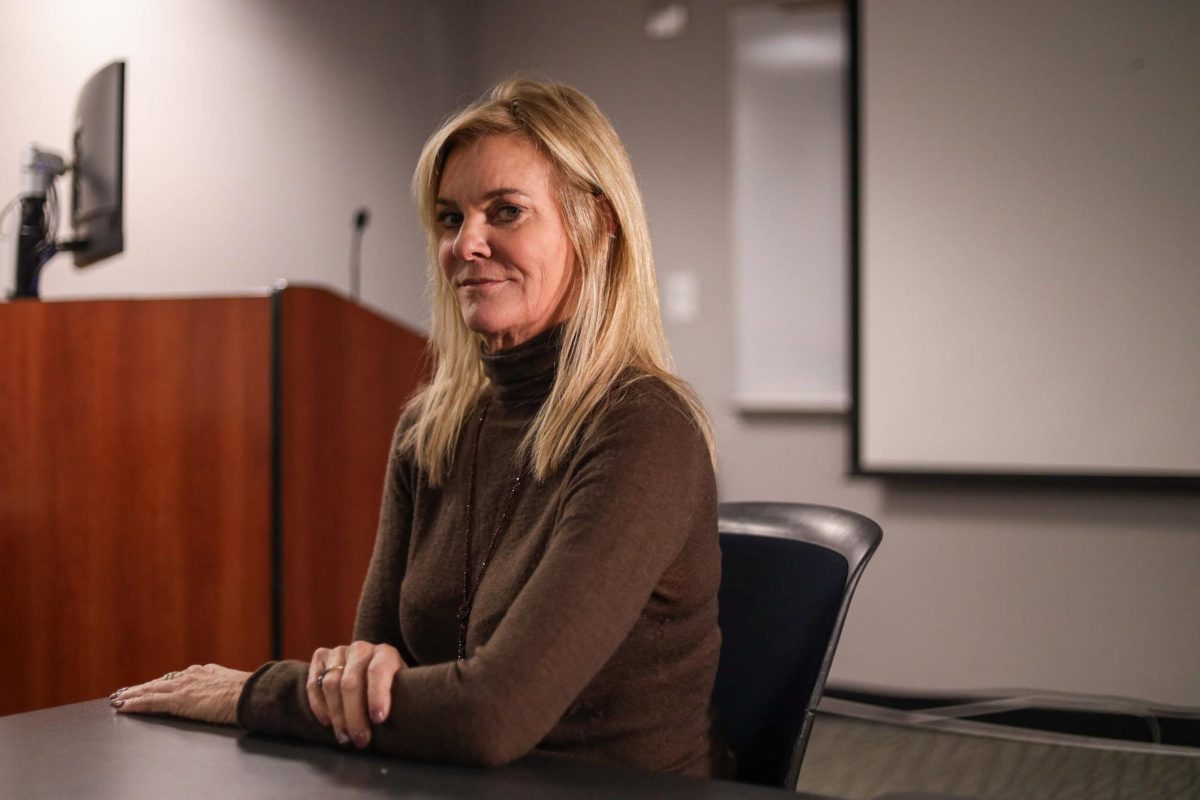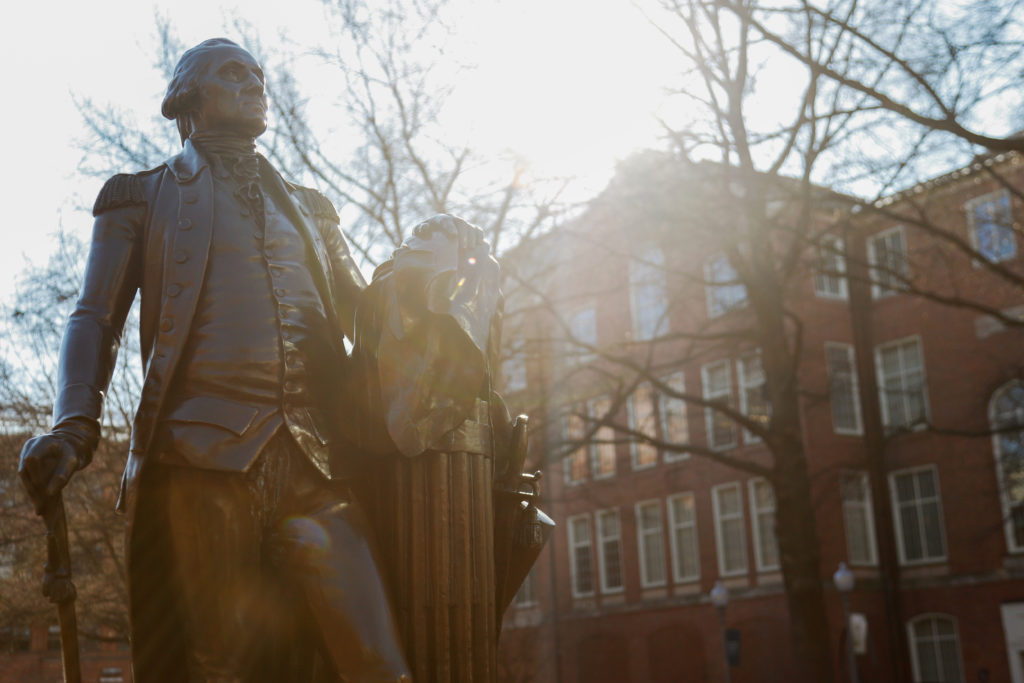Updated: March 27, 2023 at 7:48 p.m.
John Vlach, a professor emeritus of American studies and anthropology and a celebrated folklorist, died from Alzheimer’s disease in October. He was 74.
Vlach served as the chair of the American studies department, the director of the department’s graduate studies and the director of the department’s former folklife program, which taught courses on American material culture and African American, oral and art history. His loved ones and colleagues said after he came to GW in 1981, he introduced folklore studies to the University and revolutionized the American studies department, and they remember him as a kind and generous person whom they will miss greatly.
Vlach wrote 10 books throughout his life and received the Fred Kniffen Prize for Best Book on North American Material Culture for his final title, “Barns,” which was published in 2003 and analyzes the aesthetic significance of barns in American culture.
Throughout his career, Vlach also developed several exhibitions for history and art museums, like the National Museum of American History and the Henry Art Gallery in Seattle, Washington. He also held positions in the historic preservation community in D.C., serving as an adviser to the National Building Museum’s exhibition titled “Washington: Symbol and City” and as a member of D.C.’s Historic Preservation Review Board.
Vlach was born in Honolulu, Hawaii on June 21, 1948. He received his bachelor’s degree from the University of California, Davis in 1970 and earned his doctorate from Indiana University in 1975, where he studied folklife.
Vlach retired from GW in February 2013 after he was unable to continue teaching due to younger-onset Alzheimer’s, which he battled for nearly a decade. Following his retirement, more than 50 of Vlach’s students, colleagues and friends celebrated his career, accomplishments and retirement at an event hosted by the GW Office of Alumni Relations in 2013.
In 2014, officials established the Horton-Vlach Fund named after Vlach and James Horton, an American studies and history professor emeritus who died in 2017, to honor the work and pedagogy they contributed to the American studies department. The fund provides scholarship and research opportunities for students and faculty in the American studies department.
[gwh_image id=”1183912″ credit=”Courtesy of Beverly Brannan” align=”right” size=”embedded-img”][/gwh_image]
Beverly Brannan, Vlach’s wife and a curator in the Library of Congress’ Prints and Photographs Division, said she first met Vlach after attending a lecture he presented in New Orleans while he was working as a professor at the University of Texas at Austin. She said that after Vlach took his position at GW in 1981, they went on to get married and settle their family in the Capitol Hill neighborhood.
“I had heard of John’s ability to discern and articulate the nobility of well-crafted everyday lives, but the first time I attended one of his lectures, something in me said, ‘That’s the man I’m going to marry!’” Brannan said in an email. “I spoke to him immediately after his talk because he obviously honored my same values, and it didn’t hurt that he was easy on the eyes.”
She said Vlach was a born educator, and even when he was young, he enjoyed teaching other children to talk.
Brannan said one reason their marriage was successful is that while Vlach did some of the child care and most of the housework, she did most of the child care and all of the cooking. She said their grandson was born Sunday.
“Together, we savored our work and created a magnificent family,” Brannan said.
Faculty in the American studies department said Vlach was a pleasure to work alongside as he consistently advised his younger colleagues. They said he was pivotal in bringing folklore studies to the American studies department through the former folklife program.
Howard Gillette, a professor emeritus of history at Rutgers University who previously taught in the history and American studies departments at GW from 1970 to 1999, said he originally hired Vlach to work in the American studies department in 1981. Gillette said Vlach was an “incredible match” for the position due to his previous experience training students in the field of folklore.
“He had a wonderful visual capability to communicate stories about our culture, about our circumstances – both historically and in the present era – and in a very rich and powerful way,” Gillette said. “He was just terrific.”
Gillette said he enjoyed teaching alongside Vlach throughout the 1990s because Vlach had a way of engaging students through visual aids and presentations during lectures, which he said was not common at the time.
“He was just a very, very gentlemanly, embracing person, the kind of person you really liked to sit down and talk with and who had a wonderful way of bringing students into his embrace in terms of sharing our heritage and in ways that are complicated but also worth knowing,” Gillette said.
Tom Guglielmo, the department chair and an associate professor of American studies, worked with Vlach in the American studies department from 2005 to 2013, and he said Vlach’s kindness was “inspirational.” He said the Horton-Vlach Fund serves as a reminder of the work he contributed to the American studies community during his 32 years at GW.
“The department stands on the shoulders of eminent former faculty like John,” Guglielmo said in an email to the American studies department in November.
Gayle Wald, a professor of English and American studies, said Vlach was “significant” in the development of the national and international reputation of GW’s American studies department. She said many of Vlach’s students went on to take leading roles in the field of American studies, becoming librarians and curators at the Smithsonian Museum of African American History and Culture and the Library of Congress.
“I will remember him as a kind senior scholar who was always willing to answer questions or offer encouragement on my own scholarship,” Wald said in an email.
Melani McAlister, a professor of American studies and international affairs, said Vlach was the “anchor” of the American studies department. She said not only was he a “wonderful colleague” but also “friendly, generous and quick to laugh.”
“When I came to GW as a younger scholar, I found him to be as great a senior colleague as one could wish for: was supportive and warm at every turn,” McAlister said in an email. “We were very lucky to have him at GW, and he is greatly missed.”
Vlach is survived by his wife Beverly Brannan, his daughters Kate and Molly, his brother Stephen and his nephew RJ. A memorial service for Vlach is scheduled for June 24 in the Elliott School of International Affairs City View Room to commemorate what would have been his 75th birthday. Memorial contributions can be made to the Fisher Center for Alzheimer’s Research Foundation.
Editor’s Note: If any family members, friends or colleagues of Professor John Vlach would like to provide further comment for the story, email The Hatchet at [email protected].
This post has been updated to correct the following:
The Hatchet incorrectly reported that Brannan and Vlach met after a lecture in D.C. The couple met after a lecture in New Orleans.







